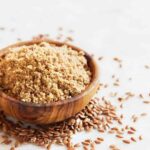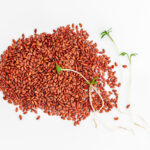Organic vs. Conventional Potatoes
I’ve been grading papers for the university classes I teach. A student of mine is the son of an Idaho farmer, and he makes a case that organic produce is not worth the money. This is one of his arguments (edited for length):
“Technologies developed in recent years are amazingly efficient. For instance, a potato field requires 400 lbs. of nitrogen per acre. Modern technologies have developed fertilizer that contains 60 percent nitrogen and 40 percent additional fertilizers in a petroleum-based liquid for easy spraying.
“Contrast that with the method of organic farming, using manure to provide nitrogen. Manure contains only about 10 lbs. of nitrogen per ton. This means 40 tons of manure must be applied to each acre of potatoes to supply needed nitrogen. That equates to a layer covering the whole field five inches thick!”
He then makes the case that farming with petroleum-based sprays is more efficient.
Potatoes a la Petroleum, anyone? Your thoughts??
Posted in: Detox













